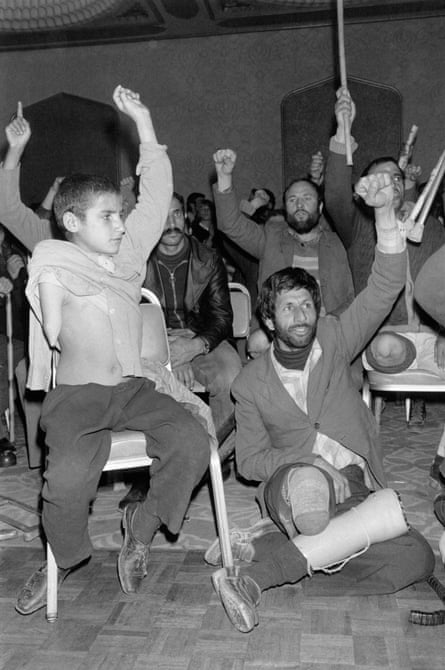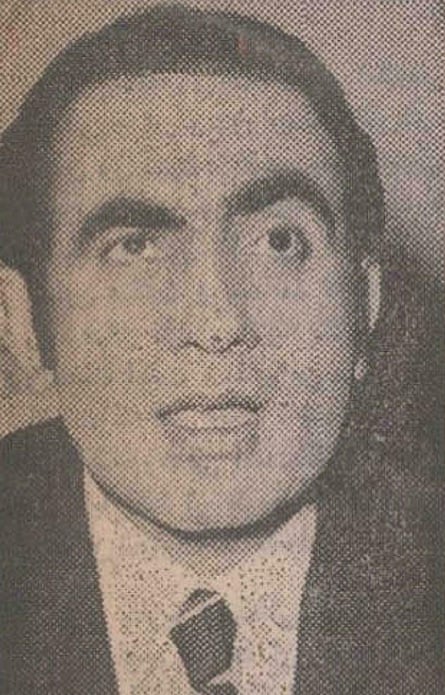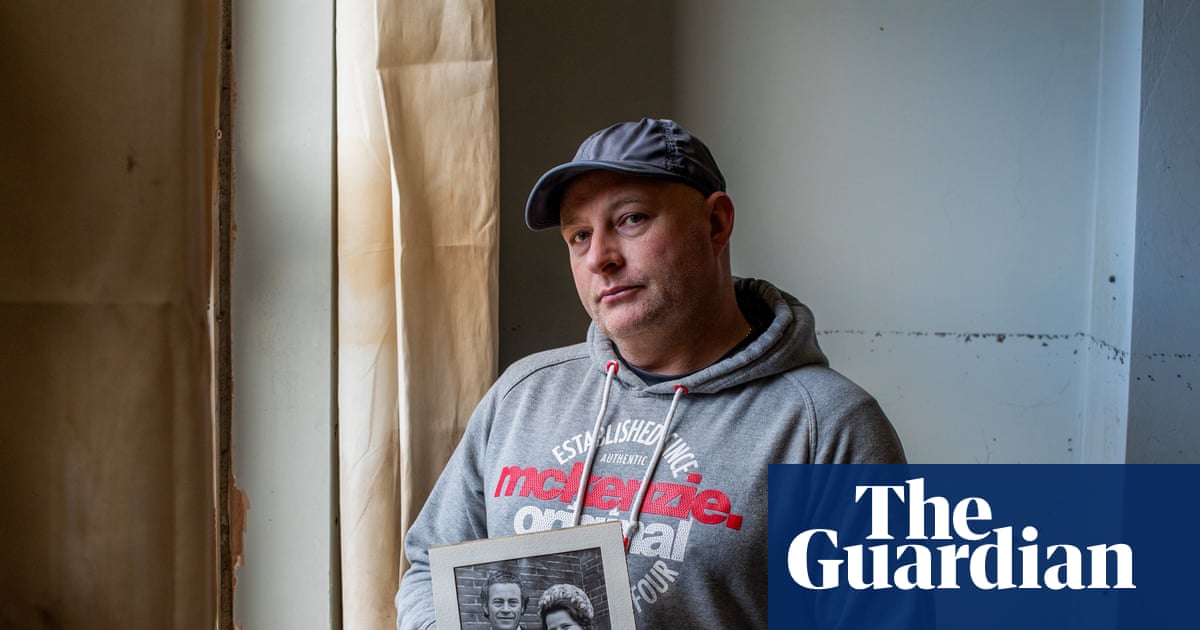Neighbors in the upscale Florida community of Windermere know them as Peter and Nancy, the seemingly friendly retired couple they wave to on morning walks, and who always appear to enjoy visits from their two high-flying grown daughters, one a respected professor of science at Harvard University.
Yet behind the high walls of their $3.6m lakefront mansion lies a darker, more closely guarded reality: “Peter” is actually Parviz Sabeti, the alleged head of secret police and chief torturer of the former Shah of Iran’s pre-revolutionary government, now facing a $225m lawsuit in Florida for atrocities committed in prisons in Tehran and elsewhere.
A district court judge ruled last month that the 89-year-old Sabeti – after crafting a successful and anonymous new life for himself and his family since fleeing his homeland in 1978 – must face trial in the case brought by three plaintiffs who describe themselves as former political prisoners.
In court filings, the plaintiffs say they were among thousands of people rounded up as perceived opponents of the shah by Savak, Iran’s notoriously brutal internal security and intelligence agency, and subjected to abuses at Sabeti’s personal direction – including rape, electric shocks, near-drownings and forced nail extraction.
One particularly barbaric piece of equipment, they allege, was Apollo, an electric chair named after the early US space program, which featured a metal helmet that amplified victims’ screams into their own ears.

Sabeti has not responded publicly to the allegations in the court filings, but has previously denied that Savak tortured detainees and claimed that he “always opposed torture”.
While Sabeti’s location was unknown for the best part of 45 years, his position in the Iranian government, and alleged role as an architect of its cruelty as director of Savak’s internal security department, was not.
He was identified as a fiercely loyal ally of the shah in a secret analysis by the US Central Intelligence Agency (CIA) written in 1978, which was not released until 2018, and was “widely recognized as one of the most powerful and feared men in the shah’s regime … with the authority to apprehend, interrogate and prosecute opponents throughout the country”, according to the lawsuit.
Estimates vary of the number of Savak victims between the agency’s founding in 1957 and its dissolution in 1979, but many thousands were known to have been detained and tortured, with at least several hundred more killed.
The three plaintiffs, Iranian men living in California aged 68 to 85, allege they were abducted by Savak in Tehran, beaten into giving false confessions and served prison time. A motion by Sabeti’s lawyers to dismiss the case for breaching the statute of limitations was rejected by district court judge Gregory Presnell of the central district of Florida on 12 August. A trial could take place early next year.
According to the lawsuit, Sabeti “has spent the last four decades out of the public eye, concealing his whereabouts and identity”. He and his wife, Nasrin, 75, might even have remained incognito had he not been inadvertently “outed” by one of his daughters in a February 2023 tweet showing him at a rally in Los Angeles denouncing Iran’s Islamic government.
While the disclosure may have been inadvertent, and directly led to the plaintiffs’ attorneys being able to locate him and file the lawsuit, some believe it was part of a campaign by the Iranian diaspora in the US to help “sanitize” the history of the former shah’s deposed government and build momentum and support for a new pro-western regime.
Reza Pahlavi, sometimes called the “crown prince” of Iran as son of the former shah Mohammad Reza Pahlavi, told the Guardian in a 2023 interview, at the height of anti-Tehran protests, that he was working with allies to draw up a charter of democratic principles for any new Iranian government to follow. He has since portrayed himself as ready to replace the supreme leader, Ayatollah Ali Khamenei, and become interim head of state.
Sabeti, meanwhile, has worked as Pahlavi’s “security adviser”, according to a 2023 article posted to the website of the National Council of Resistance to Iran, a coalition of Iranian political figures portraying itself as a parliament in exile.
Efforts by the Guardian to reach Sabeti were unsuccessful, including emails and calls to his home, and messages seeking comment to all four of his attorneys listed in court documents.

Not in question is how well Sabeti and his family have lived in the US since arriving in Florida in 1978, having fled Tehran just weeks ahead of the 1979 Islamic revolution.
The Sabetis, who according to leaked state department documents were able to transfer a sizable sum of money from Iran – said by one source to be above $20m – westernized their first names to Peter and Nancy after their arrival.
Using those aliases, Sabeti set up what was to become a successful real estate development company in central Florida. Sabeti, his wife and two daughters are listed as directors of several still-active companies on the state of Florida’s business database.
Public records seen by the Guardian show that the Sabeti family own at least eight properties in Orange county, including the five-bedroom, six-bathroom Windermere mansion purchased for $3.5m in August 2005.
The state department and the CIA did not respond to questions about the Sabetis’ immigration status in the US, or the grounds on which they were first admitted in 1978. Both Parviz and Nasrim Sabeti, however, hold active voter registrations in Florida, and records show they voted in the 2024 presidential election, meaning both are US citizens.
A neighbor said she would often see the couple, particularly Nasrim, out walking, but that the Sabetis mostly appeared to value their privacy. Their house was almost always quiet, apart from occasional visits by their daughters.
Neither daughter responded to a request for comment.
Florida’s Republican attorney general, James Uthmeier, did not respond to a question about whether he would launch a criminal investigation into Sabeti’s activities, as he previously has for other people in Florida accused of nefarious crimes overseas.
Sara Colón, an attorney for the plaintiffs, welcomed Presnell’s orders to deny Sabeti’s request for dismissal, and to preserve the anonymity of her clients, who said they had been subjected to death threats and intimidation since filing the lawsuit.

“These decisions are a positive result for survivors of torture who are seeking accountability and justice. This case is not only about ending impunity, it is about affirming that survivors have the right to pursue justice and reclaim their dignity without fear,” she said.
The Iranian Collective for Justice & Accountability, an advocacy group for victims of torture and their families, said it hoped the Sabeti case would help end a “cycle of violence” seen in Iran during the shah’s regime and the Islamic fundamentalist government that succeeded it.
“The message should be clear and simple: all victims deserve justice, and everyone engaged in torture and repression should be held accountable,” a spokesperson for the group said in a statement.
“The roots of the brutal policies being carried out today by the Islamic Republic of Iran are connected to the torture methods enacted by Sabeti and Savak. [The case] should stand as a rejection of a future Iran that re-establishes Savak, or seeks to provide blanket amnesty to current security forces who have been involved in torture and repression.
“It is only through justice and accountability that we can overcome the horrific violence and repression that has ruled Iran for decades.”

 2 months ago
46
2 months ago
46

















































